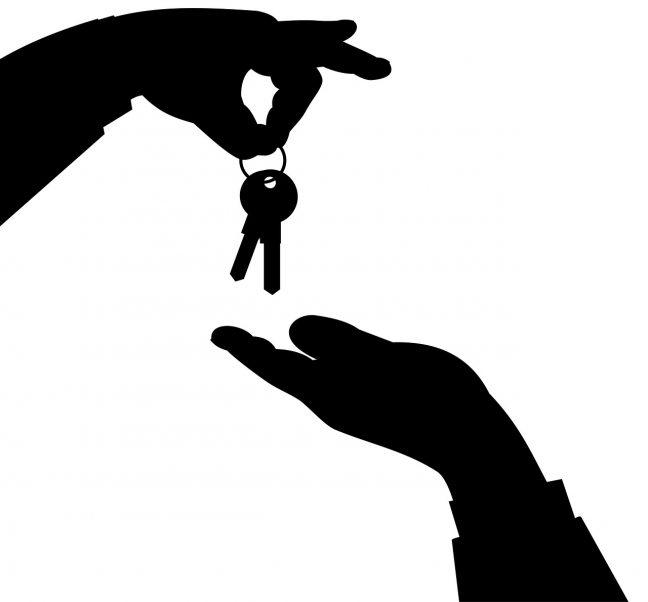What does it mean to be confident?
Confident, put simply, is defined as a belief in the powers, trustworthiness or reliability of a person or thing — which seems simple enough to grasp.
But sitting in a local coffee shop, watching as beautiful and well-postured people swirl together in a cloud of purpose and caffeine, that definition seems dull, only acknowledging the word as a noun rather than a way of life many of us struggle to understand.
So what is confidence really? Is it a lifestyle, or a mantra you can repeat in your head?
Hendrie Weisinger, a New York Times bestselling author and researcher in the field of human emotions and behavior, believes that confidence has evolved “because it gives [humans] an evolutionary edge — to help [us] approach a task without trepidation.”
There’s value in knowing your actions can influence an outcome. Without such beliefs, humans would seldom be motivated to change their situations or work toward a better reality.
Confidence allows us to overcome the fear of failure, and persevere in the face of adversity — which has been a tremendous contributing factor in creating the world we live in today.
So why do some feel more benefits of this evolutionary edge, and what factors contribute to that uneven allocation of confidence?
Weisinger delves further into that very question, and according to his findings, there are five key factors which help to answer these questions.
The first influencer of confidence is one’s honesty in evaluating their true set of abilities, inner strengths and inner weaknesses. Those who have experienced constant praise or relentless reassurance of their capabilities often struggle to trust themselves and their inner beliefs.
Not everyone is great at running, but by praising good and bad runners just the same, the line of true ability is blurred — causing frustration for less skilled runners who subsequently end up with lackluster results.
When humans can acknowledge their strengths and weaknesses effectively, they can then begin to truly trust their inner beliefs, understanding that they were formed from true experience instead of hollow praises.
A second important factor in the confidence equation is the method and extent to which people visualize their futures. Those who spend time thinking up elaborate daydreams of winning a presidential election or finally having healthy, meaningful relationships are more likely to experience the effects of confidence.
Understanding and working to articulate the true outcome that you desire is an important step that helps to better lead your current actions towards your true intended reality.
Lack of psychiatrists in Wisconsin, unsatisfactory mental health services on campus fail students
While saying you want to be a neurosurgeon is helpful when considering which classes to take next semester — dreaming of successful surgeries and changing the lives of patients on a daily basis can bring purpose into your studies and change your goals from a one-dimensional statement to a way of life you’re working to create.
When we have clear and vivid ambitions, confidence in its true nature can work best — allowing you to take risks that are more closely related to your actual intentions.
A third consideration in the search to understand how confidence works revolves around criticism. People with a stronger sense of confidence are often able to take criticism for what it is rather than equating it to personal attacks or negative judgements about who they are as a person.
When we’re able to see criticism as suggestions for how to improve and grow, this allows us to direct our energy towards end desired goals, once again leaving room for confidence to do what it’s designed to — overcome barriers and lead yourself closer to where you want to be.
Joe Parisi announces increased funds for mental health, addiction services in 2019
Though there are many strategies we can employ to boost our overall confidence, there are some aspects of the feeling that you can’t change or control. It’s proven that growing up in a supportive environment of unconditional love can lessen one’s fear of failure, leaving more room for confidence to grow.
While the past cannot be changed, this finding emphasizes the importance of cultivating a healthy and loving support system regardless of what you’ve experienced in the past.
Finally, Weisinger mentions previous experiences of success contribute to future feelings of confidence when approaching other problems. The key component here is recognizing that successful events and prideful achievements are not simply strokes of luck or sheer ability, rather they are understanding that those elements along with confidence all played a part.
Everyone has positive and fulfilling events they can draw from, but without connecting those rewarding experiences with the presence of confidence, the foundations of a confident outlook on life is harder to secure.
In efforts to unify campus, ‘I am UW’ campaign aims to create feelings of inclusivity across UW
All of these insights give way to a more complete perspective on the subject, and contextualize it for me as a tool rather than a lifestyle. Confidence does not relate to one’s ability or worth — it simply dictates the vehicles through which inner beliefs function.
Knowing more about the characteristics I’ve spent so much of my life longing for has allowed me to be gentle with myself and patient in my failures and successes.
I have slowly come to accept that humans are complex and cannot be judged on first glance. Confident people often seem like embodiments of perfect people living perfect lives. But in reality, they are gifted in their ability to recognized inner strengths and weaknesses — simultaneously experiencing a world as vast and unique as my own.


